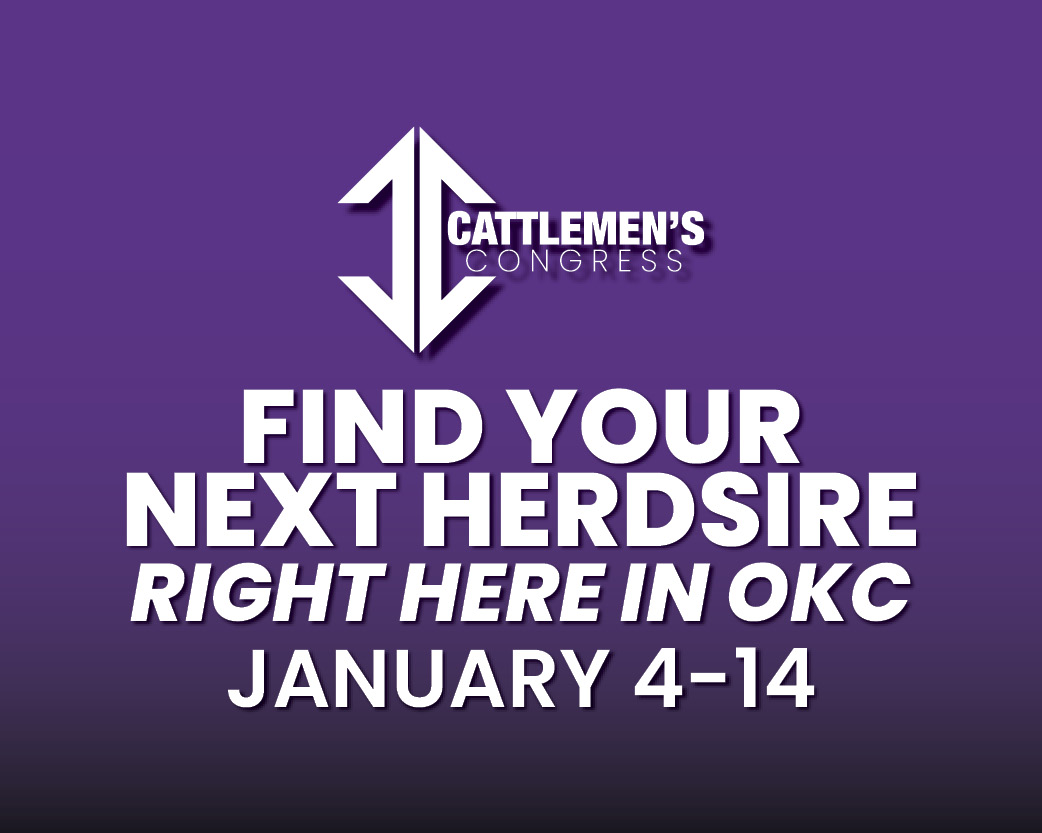
Dr. Derrell Peel, Oklahoma State University Extension Livestock Marketing Specialist, offers his economic analysis of the beef cattle industry as part of the weekly series known as the “Cow Calf Corner,” published electronically by Dr. Peel, Mark Johnson, and Paul Beck.
The latest edition in the torrent of recent political attentions directed at the cattle and beef industry includes allegations of market manipulation against the beef packing industry. Beef packers are the one segment that has been most negatively impacted in the current market, incurring huge losses due to poor margins and limited cattle supplies. Using logic that only works in the office of a politician, packers are supposedly wielding unacceptable market power while paying record high cattle prices and artificially raising beef prices…but not enough to avoid losing a couple hundred dollars on every animal they process – certainly many millions of dollars. If beef packers had any significant ability to exercise market power, I am certain that we would not have record high cattle prices and packers would not be losing money.
Having identified high beef prices as a political issue, the federal administration is desperate to find a scapegoat since current cattle market conditions ensure that beef prices are inevitably and unavoidably elevated until such time as the cattle industry can rebuild – another 2-4 years at least. Federal government attacks on beef packers are aided and supported by a vocal minority of the cattle industry (and a few sympathetic politicians) who view packers as a perennial villain and always worthy of attack anytime the opportunity is presented. These attitudes have been a factor in the beef industry for well over a century. Ward (2002) noted a quote by Senator John B. Kendrick of Wyoming in 1919 that said “This squall between packers and the producers of this country ought to have blown over forty years ago, but we still have it on our hands…” The timing of such attacks this time is particularly puzzling as dismantling the packing industry would certainly jeopardize current record high cattle prices and the best economic returns most producers have ever enjoyed. I guess some cowboys just can’t stand prosperity.
The majority of cattle producers, on the other hand, understand that the cattle and beef industry is extremely complex and all segments of the industry are critical and essential (Peel, 2021). Most of my ongoing discussions with cattlemen includes questions and concerns about the potential loss of vital infrastructure due to the losses currently faced by beef packers. Proposals to bulldoze the packing industry will negatively impact cattle producers and beef consumers and cripple the cattle and beef industry for many years.
Concentration in any industry leads to the potential for market power. The ability of concentrated firms to utilize market power depends on controlling supply. Large firms do not control demand and can only influence price by controlling supply relative to demand. Beef packers’ ability to manipulate cattle or beef prices is severely limited owing to the fact that they do not control supply…packers do not own cows. Packers inevitably purchase and process all available cattle at any point in time – whether too many or not enough cattle. The current situation is way not enough and packers can’t change that. If there were more cattle to process, they would, and beef prices would decrease.
The beef packing industry has been the subject of repeated and intense scrutiny for many years. The sizable body of research was summarized by Peel, et.al (2020):
“Agricultural economists recognize the potential for market power to be expressed in highly concentrated industries. The cattle and beef industry, and the beef packing industry in particular, has been researched in multiple studies to understand the impacts of market concentration. The evidence shows 1) market power does negatively impact fed cattle prices, but the impact is small and 2) the cost savings due to size economies are at least 10 times greater than the negative market power impacts. Cattle producers and beef consumers receive net benefits from the cost efficiencies of the current market structure in the form of higher cattle prices and lower beef prices than would exist in a less efficient industry.”
Though the outcome of current political actions is uncertain, the potential for long-term harm to the industry is substantial. Anytime politics trumps economics, the strong supply and demand fundamentals that have determined the outlook for the industry to this point become irrelevant. Expectations for prices and production going forward are now completely clouded…therefore… all bets are off.
References:
Peel, Derrell S. (2021) “How We Got Here: A Historical Perspective on Cattle and Beef Markets.” Chapter 1. In The U.S. Beef Supply Chain: Issues and Challenges. Proceedings of a Workshop on Cattle Markets. Bart L. Fischer, Joe L. Outlaw and David P. Anderson, editors. Agricultural and Food Policy Center, Texas A & M University 2021.
Peel, Derrell S., David Anderson, John Anderson, Chris Bastian, Scott Brown, Stephen Koontz and Josh Maples. (2020) “Price Discovery Issues and Considerations” Circular E-1053, Oklahoma Cooperative Extension Service, November 2020.
Ward, C.E. (2002) “A Review of Causes for and Consequences of Economic Concentration in the U.S. Meatpacking Industry.” Current Agriculture, Food and Resource Issues, Issue 3, No. 28.


















